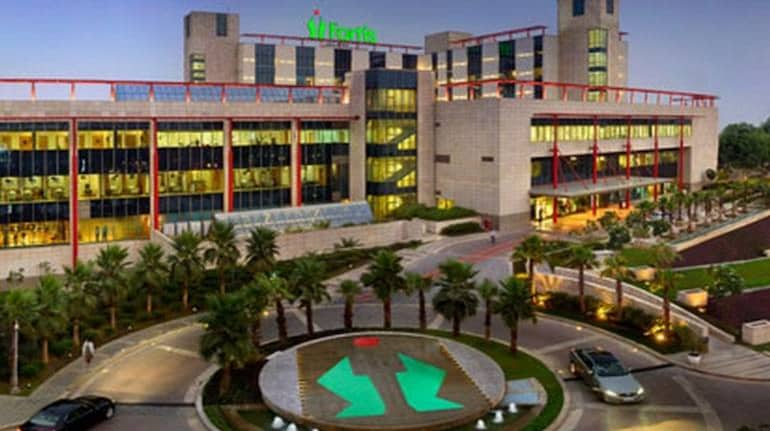



Fortis Healthcare, which has seen occupancy levels nosedive due to the sharp fall in elective surgeries, outpatient consultations and stoppage of international patients, has struggled to capture the Covid-19 opportunity. That, too, despite setting aside a major part of its infrastructure to treat patients afflicted by the disease.
The company says the reason for low realisations from Covid-19 is due to the price caps imposed by State governments and the declining trend of cases in the geographies that it operates in.
Of the 3,650 operational beds in its network, Fortis Healthcare has currently allocated around 1,260 beds for Covid-19 patients.
Battered by COVIDThe country's third-largest hospital chain had seen some normalcy returning to its business operations in FY20 under new owner IHH Healthcare. However, Covid-19 disrupted that in Q1FY21.
Hospital business revenue in Q1 FY21 stood at Rs 488.3 crore, a fall of 47 percent from Rs 913 crore in the year-ago period. Revenues from Covid-19 treatment were approximately 8 percent of hospital revenues.
As of July, Fortis’ hospital network had an occupancy level of 51 percent, of which Covid-19 patients accounted for 14.3 percent, an improvement from just 3.7 percent in May, but not nearly enough to reach the pre-Covid occupancy levels of 65-70 percent.
“The (COVID-19 numbers have started flattening across major geographies where we have hospitals, I don't expect any massive increase,” Dr Ashutosh Raghuvanshi, MD and CEO, Fortis Healthcare, said in a recent media call.
“Also there are a lot of regulations that have come on pricing. The yield coming down would result in similar revenues as we have seen in the first quarter,” Raghuvanshi added.
Most of Fortis’ hospitals are concentrated in Delhi NCR and Mumbai, where there has been a steady decline in Covid-19 cases.
Delhi, which was reporting 3,500-4,000 Covid cases on a daily basis in June, is now seeing less than 1,000 cases a day. Mumbai, too, has seen a steady decline in daily cases from about 6,000 in June to less than 1,000 cases a day now.
Moreover, Maharashtra and Delhi have capped the prices of Covid-19 treatment. For instance, in June, the Delhi government capped charges for intensive care unit beds with ventilator support of Covid patients at Rs 18,000, a norm applicable to 60 per cent of the total private beds in the national capital.
Maharashtra, too, capped the charges for a Covid-19 patient in an isolation ward at Rs 4,000 a day. The maximum charge for an ICU has been capped at Rs 7,500 per day, and charges for ventilators are capped at Rs 9,000 a day. This is applicable for 80 percent of beds.
Earlier, private hospitals were charging between Rs 40,000 and Rs 50,000 a day for a ventilator. With the price caps, the charges are now about 70-80 percent lower than before. While there are allegations of private hospitals flouting the caps, the hospitals have denied this.
“The prices for Covid-19 treatment are controlled across the geographies we are present in. We comply with existing regulations, and are trying to make the whole process as transparent as possible,” Raghuvanshi said.
Gradual recovery expectedRaghuvanshi says that with the gradual opening up of the economy, business momentum has improved and Fortis is seeing a gradual uptick on a month-on-month basis.
“OPD and IPD volumes have shown a month on month improvement, resulting in a gradual recovery of non-Covid patient flow,” he said.
Hospital occupancy, which had dropped to 29 percent in April, has become stable at a little over 50 percent in July and August.
About 9 percent of all the OPD consultations now happen digitally, and the hospital chain expects more OPD consultations to move online as it strengthens its technology platform.
Raghuvanshi says the recovery could be gradual as the majority of patients postpone elective surgeries further. Restrictions on international travel, limited lockdowns in select States, and the ongoing regulatory uncertainty are also factors affecting performance, he said.
Discover the latest Business News, Sensex, and Nifty updates. Obtain Personal Finance insights, tax queries, and expert opinions on Moneycontrol or download the Moneycontrol App to stay updated!
Find the best of Al News in one place, specially curated for you every weekend.
Stay on top of the latest tech trends and biggest startup news.